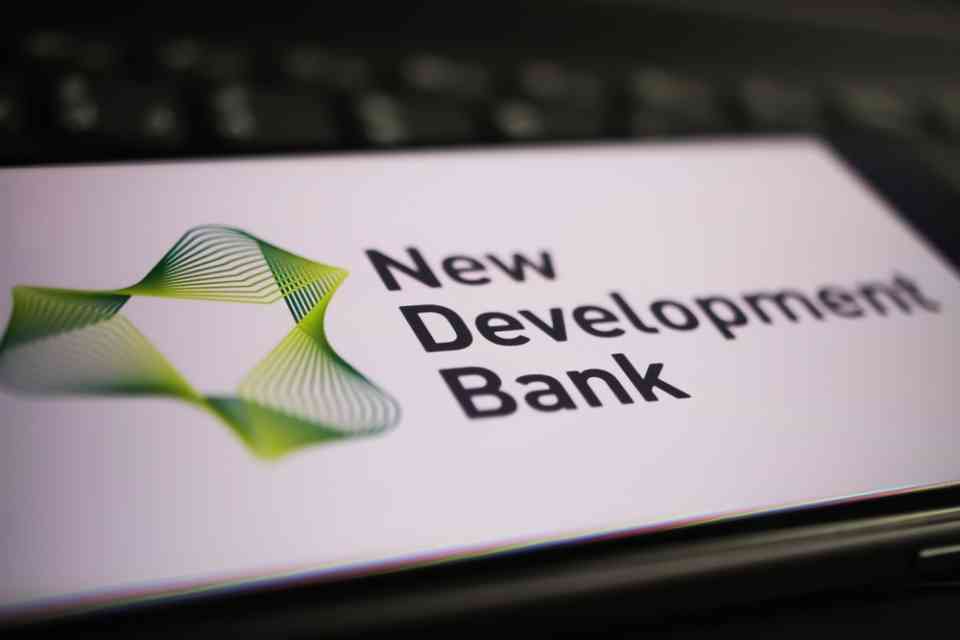NDB’s Role in Driving Growth and Sustainability in Emerging Markets

The New Development Bank (NDB) is set to intensify its support for economic development in emerging economies while tackling critical challenges like climate change, according to its president, Dilma Rousseff. She emphasized that the bank’s growing membership will further enhance its capacity to foster progress.
Rousseff, speaking after receiving China’s prestigious Friendship Medal in September, highlighted the NDB’s commitment to helping emerging nations achieve steady growth and mitigate crises. She pointed out that the bank’s focus includes infrastructure development in areas such as logistics, education, healthcare, and digital services.
The NDB has made substantial headway in financing key infrastructure projects among its member states. To date, it has approved $35 billion in loans across 105 projects, including the Mumbai Urban Transport Project-III in India, the Serra da Palmeira Wind Power Project in Brazil, and the Jiangxi Urban and Rural Cold Chain Logistics Project in China, as reported by Xinhua News Agency.
In August, the NDB reached a $280 million loan agreement with South Africa’s freight transport giant Transnet, aimed at upgrading the country’s rail infrastructure. The same month, the bank approved a $1 billion loan to support South Africa’s water and sanitation systems and another $150 million loan for China’s acquisition of liquefied natural gas carriers through the Bank of Communications Financial Leasing.
In January, India secured three loan agreements from the NDB totaling $700 million, aimed at boosting transportation, water, and sanitation infrastructure across the country.
Rousseff underscored the limited resources that developing nations have in combating climate change, emphasizing the need for further development of renewable energy sources. She commended China’s leadership in the electric vehicle industry and expressed hope for continued progress in energy storage and renewable energy supply.
As outlined in its 2022-2026 strategy, the NDB has earmarked 40% of its $30 billion financing plan for green initiatives, with climate change mitigation as a central focus. Earlier this year, the NDB issued panda bonds worth 6 billion yuan ($840 million), followed by another 8 billion yuan bond in July, both part of its efforts to fund infrastructure and sustainable projects that align with the United Nations’ Sustainable Development Goals.
Launched in 2014 by Brazil, Russia, India, China, and South Africa, the NDB began operations in July 2015, with its headquarters in Shanghai. Since 2021, the bank has expanded its membership to include Bangladesh, Egypt, the United Arab Emirates, and Uruguay.
Rousseff highlighted China’s developmental model as an example for the Global South, noting that the country’s advances in infrastructure, technology, and the economy have demonstrated resilience against obstacles like sanctions. She praised China’s achievements over the past 75 years, particularly its role in leading innovation, fostering globalization, and emphasizing scientific and technological advancements.
The deepening partnership between China and Brazil was cited as an example of how cooperation among Global South nations can boost economic growth and improve quality of life. Rousseff pointed to the Belt and Road Initiative, under which China and Brazil have strengthened their collaboration in trade and technology. Brazil has also become a key player in ensuring China’s food security, serving as its largest food supplier in recent years.
Rousseff also acknowledged the significance of Chinese investment in Brazil, noting that it plays a vital role in the country’s reindustrialization. Among the major highlights of Chinese investment is the China National Offshore Oil Corporation’s collaboration with Petrobras, Brazil’s leading oil and gas company, in the Pelotas Basin for oil exploration.
China’s investments have particularly benefited less-developed regions in Brazil by addressing energy shortages through the construction of high-voltage direct transmission lines, she added.
As China’s largest trading partner since 2009, Brazil has also attracted considerable Chinese investment. In 2023, the trade volume between the two countries reached $181.53 billion, further solidifying their economic ties.
Have you read?
Countries: Powerful Passports.
Countries: Richest.
Countries: Poorest.
Countries: Happiest.
Countries: Life Expectancy.
Bring the best of the CEOWORLD magazine's global journalism to audiences in the United States and around the world. - Add CEOWORLD magazine to your Google News feed.
Follow CEOWORLD magazine headlines on: Google News, LinkedIn, Twitter, and Facebook.
Copyright 2025 The CEOWORLD magazine. All rights reserved. This material (and any extract from it) must not be copied, redistributed or placed on any website, without CEOWORLD magazine' prior written consent. For media queries, please contact: info@ceoworld.biz











